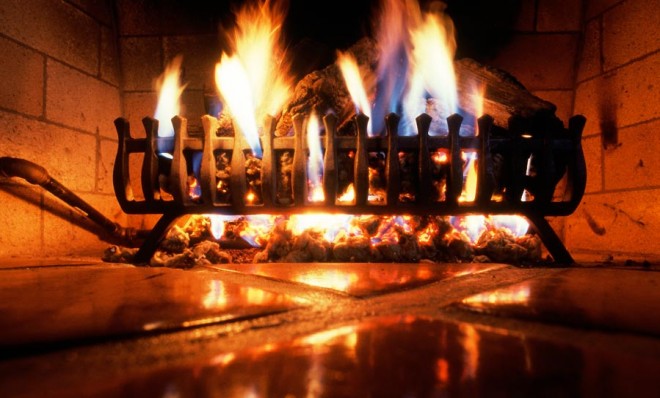4 shows from Norway's crazy, successful slow TV experiment
Norwegians embrace television that challenges them to take it all in, including a 4-hour discussion about firewood


A free daily email with the biggest news stories of the day – and the best features from TheWeek.com
You are now subscribed
Your newsletter sign-up was successful
You may have heard of the slow food movement, a philosophy of cooking and eating slowly, with full attention and enjoyment, that serves as a counterpoint to a hurried fast food culture. The slow concept has worked its way into all kinds of practices. Slow gardening, slow parenting, and slow travel, all offer alternatives to the hustle and distraction of modern life. The slow philosophy works well for any experience that can be improved by conscious savoring and appreciating. That's why for the past several years Norway has been applying the slow concept to... television? Yes, and with surprising success. Here are four things Norway turned into slow shows.
1. A train ride
In 2009, for the 100th anniversary of Norway's Bergen Railway, the national public broadcasting company decided to film and air the complete 7 hour 16 minute journey from Bergen to Oslo, a line considered to be one of the most beautiful in the world. Four cameras, two rigged to the front of the train and two to the back, captured an "orgy of beautiful nature." No plot, no gimmicks, just rolling scenery with some on-board interviews mixed in. While the train went through tunnels, archival photographs of the railway's history were shown. Bergensbanen: Minutt for minutt was a smash hit, getting over 1.2 million viewers in a country of about 5 million, with 172,000 watching the entire trip from start to finish.
The Week
Escape your echo chamber. Get the facts behind the news, plus analysis from multiple perspectives.

Sign up for The Week's Free Newsletters
From our morning news briefing to a weekly Good News Newsletter, get the best of The Week delivered directly to your inbox.
From our morning news briefing to a weekly Good News Newsletter, get the best of The Week delivered directly to your inbox.
2. A sea cruise
They followed up in 2011 with Hurtigruten: Minutt for minutt, a whopping 134-hour sea cruise through the fjords from Bergen to Kirkenes. Passionate fans around the world watched it streaming online.
3. A fire
At least voyages go somewhere. The limits of slow TV were tested to the extreme this February with Nasjonal Vedkveld (National Wood Fire Night), a 4-hour discussion about firewood, followed by eight hours of a crackling fireplace. This time, the station did get some viewer complaints, but not objecting to the slow nature of the program. The complaints had to do with differing opinions on whether bark-up or bark-down was the proper orientation for stacked firewood. Norwegians are serious about firewood.
A free daily email with the biggest news stories of the day – and the best features from TheWeek.com
4. A single interview
What heights of slowness can Norwegian broadcasting attain from here? This May the world record for longest interview was claimed by Norwegians when reporter Mads Andersen interviewed writer/historian/politician/chess player Hans Olav Lahlum for 30 straight hours on VGTV. In an age when people can't seem to keep their eyes on a single screen for more than a few minutes, how does slow TV attract viewers? Commenters on TV websites and social media marvel at their own interest in these shows, expressing surprise at the way they get drawn in. The shows induce both calm and excitement, turning tiny moments into revelations by their contrast with monotonous repetition. Or, as the project manager of the Hurtigruen cruise show explained to Reuters, "It is the opposite to everything else on TV — that's why it stands out and why, apparently, people want to watch."
Arika Okrent is editor-at-large at TheWeek.com and a frequent contributor to Mental Floss. She is the author of In the Land of Invented Languages, a history of the attempt to build a better language. She holds a doctorate in linguistics and a first-level certification in Klingon. Follow her on Twitter.
-
 James Van Der Beek obituary: fresh-faced Dawson’s Creek star
James Van Der Beek obituary: fresh-faced Dawson’s Creek starIn The Spotlight Van Der Beek fronted one of the most successful teen dramas of the 90s – but his Dawson fame proved a double-edged sword
-
 Is Andrew’s arrest the end for the monarchy?
Is Andrew’s arrest the end for the monarchy?Today's Big Question The King has distanced the Royal Family from his disgraced brother but a ‘fit of revolutionary disgust’ could still wipe them out
-
 Quiz of The Week: 14 – 20 February
Quiz of The Week: 14 – 20 FebruaryQuiz Have you been paying attention to The Week’s news?
